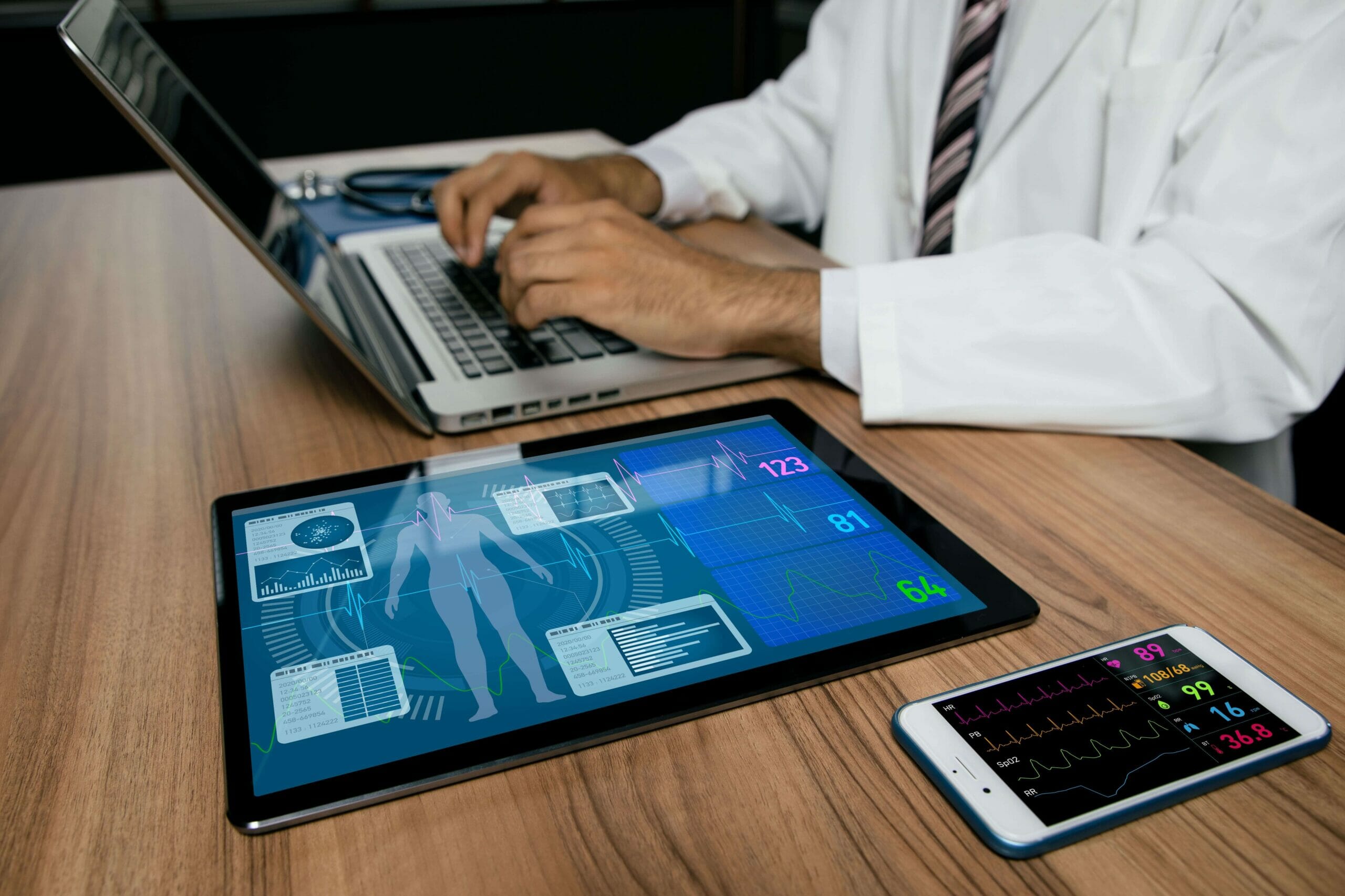In our interconnected world, where technology continuously advances, data collection serves as the bedrock for driving transformative patient care. By systematically gathering and analyzing data, we allow RPM companies to gain profound insights, make well-informed decisions, and pioneer innovative approaches. At Smart Meter, we understand that the power lies in understanding patterns, trends, and correlations within the healthcare domain. Our RPM solutions empower RPM companies to harness the potential of data, unlocking actionable knowledge that guides strategic planning, improves operational efficiency, and transforms patient outcomes. In this era of rapid digital transformation, our commitment to data collection empowers our SmartPartners™ to navigate the ever-evolving landscape of healthcare with unwavering confidence and agility.
Why Is Data Important for RPM Companies?
1. Early Detection of Health Problems
By collecting data on vital signs, symptoms, and other health metrics, RPM companies can detect potential health problems early on and intervene before they become more serious. For instance, if a patient's blood pressure rises consistently over a period of time, it may indicate the onset of hypertension. RPM companies can notify the healthcare provider about the trend and take appropriate action, such as adjusting the medication or scheduling a follow-up visit. By detecting health problems early, RPM companies can prevent complications and improve patient outcomes.
2. Personalized Care
Data collected through RPM systems can be used to provide personalized care to patients. By analyzing a patient's health data, healthcare providers can gain insights into the patient's health condition and tailor treatment plans accordingly. For example, if a patient has diabetes, healthcare providers can monitor their blood glucose levels and adjust their medication or dietary plan to keep their blood sugar within a healthy range. Personalized care can lead to better health outcomes and greater patient satisfaction.
3. Reduced Hospital Readmissions
RPM companies can use data to monitor patients after they leave the hospital, reducing the risk of readmission and improving patient outcomes. For example, if a patient has recently undergone surgery, RPM companies can use in-home sensors to monitor their recovery progress and ensure that they follow the prescribed medication and rehabilitation plan. If the data shows that the patient is experiencing complications, RPM companies can notify the healthcare provider and intervene before the condition worsens. RPM companies can lower healthcare costs and improve patient outcomes by reducing hospital readmissions.
4. Lower Healthcare Costs
By providing remote care to patients, RPM companies can reduce healthcare costs by avoiding unnecessary hospital visits and improving the efficiency of care delivery. Using our RPM devices, your company can detect potential health problems early on and intervene before the patient requires hospitalization. Additionally, RPM companies can use data analytics to identify patterns and trends in the data, enabling healthcare providers to optimize treatment plans and reduce costs.
5. Improved Patient Engagement
By collecting data and providing patients with insights into their health condition, RPM companies can help patients become more engaged in their own care, leading to better health outcomes. For example, if patients can see how their blood glucose levels fluctuate throughout the day, they may be more motivated to follow their dietary and medication plans. RPM companies can also provide patients with educational resources and tools to help them better understand their health condition and take an active role in their care.
6. Long-Term Trend Analysis
By collecting data over an extended period, RPM companies can analyze long-term trends in patients' health conditions. This allows healthcare providers to identify patterns, predict potential health issues, and make informed decisions about ongoing care management. Long-term trend analysis can also help in assessing the effectiveness of treatment plans and interventions.
7. Research and Development
Data collected by RPM companies can be invaluable for research and development purposes. Aggregated and anonymized patient data can be used for population health studies, clinical trials, and the development of new treatment protocols. This data can contribute to advancing medical knowledge, improving patient outcomes, and enhancing the overall quality of care.
8. Quality Improvement Initiatives
Data collection enables RPM companies to participate in quality improvement initiatives. By analyzing data on patient outcomes, adherence to treatment plans, and healthcare utilization patterns, companies can identify areas for improvement and implement targeted interventions to enhance the quality and efficiency of care delivery. This can lead to better patient satisfaction, reduced healthcare costs, and improved overall healthcare system performance.
Trust Us With Your Data Collection
Data collection is a crucial component of remote patient monitoring, enabling RPM companies to provide personalized, effective care to patients that can improve the overall quality of care for patients.
At Smart Meter, the data collected from our RPM devices is instantly transmitted to our secure data collection platform via a cellular network. From there, our platform aggregates patient data — even across multiple devices — to facilitate intervention. If any adjustments need to be made, our partners can access our Smart Solutions Portal to manage devices 24/7. They can also control patient portals and adjust their RPM system as needed.
Data collection is a key aspect of RPM companies’ success. Let us help ensure you receive the most accurate, trustworthy data possible. Contact us today to learn more about our products, data collection, and services.




